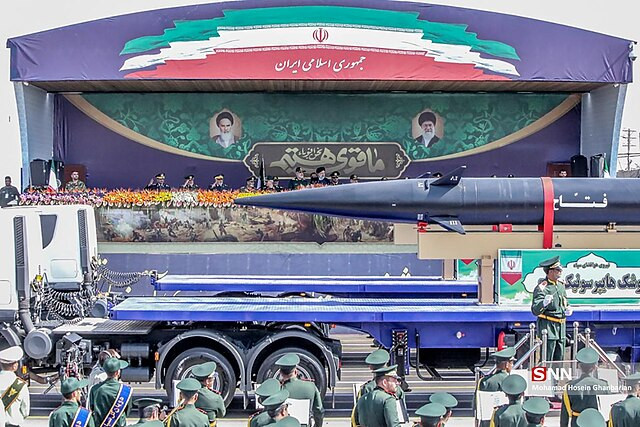Iran has delivered a batch of close-range ballistic missiles to Russia but withheld the launchers necessary to deploy them, raising questions about the operational status of these weapons and the broader implications for military cooperation between Tehran and Moscow. According to Reuters, the absence of mobile launchers for the Fath-360 missiles could indicate strategic delays, leaving the weapons currently unusable in Russia's ongoing war against Ukraine.
Three officials, including a U.S. official, a European diplomat, and a European intelligence officer, revealed that while Iran provided the missiles, the launchers were notably absent. The reasons behind this decision remain unclear, though experts and analysts have suggested several potential explanations. One possibility is that Russia may modify its own military vehicles to launch the missiles, a tactic previously used by Iran, which has adapted civilian trucks into mobile missile platforms. However, the delay in delivering operational missile systems has raised speculation about Iran's intentions.
The absence of the launchers comes amid growing international scrutiny of Iran's military support for Russia. U.S. Secretary of State Antony Blinken had previously confirmed that Iran had sent the Fath-360 missiles to Russia, stating that they would likely be used in Ukraine within weeks. The missiles, which can travel at four times the speed of sound and have a range of up to 75 miles (121 km), pose a new challenge to Ukraine's air defenses. These advanced ballistic weapons are designed to target short-range positions, allowing Russia to conserve its own missile arsenal for longer-range attacks.
Despite the severity of this threat, the withheld launchers mean the Fath-360s remain grounded for now. "It's unclear why Iran withheld the launchers, but the decision leaves Russia without a crucial component of its missile capability," said Fabian Hinz, an expert on Iranian missiles with the International Institute for Strategic Studies. He suggested that Russia could eventually modify its military-grade vehicles to deploy the missiles but noted that this process could take time, particularly given the rugged terrain and harsh conditions in Ukraine.
David Albright, a former U.N. nuclear inspector and current head of the Institute for Science and International Security, offered another perspective, proposing that Iran's decision may have been influenced by broader geopolitical considerations. Albright speculated that by withholding the launchers, Iran could be leaving room for diplomatic negotiations. "It could be that they are holding back the launchers to provide a little space for these talks," he said, referring to potential discussions between Iranian and European officials at the upcoming U.N. General Assembly.
Albright's theory underscores the complexity of the situation, as Iran's military support for Russia has drawn widespread condemnation from the West, leading to new rounds of sanctions against Tehran. Following reports of the missile deliveries, the United States, Germany, Britain, and France imposed fresh sanctions on Iran, targeting its aviation sector and other industries connected to military operations. The European Union has also signaled its intention to increase pressure on Iran, further isolating the nation diplomatically.
While Iran continues to deny supplying missiles and drones to Russia, the evidence suggests otherwise. The U.S. and its allies have repeatedly accused Tehran of providing Moscow with military hardware, including drones that have been used to target Ukraine's energy infrastructure. The missiles themselves, which were reportedly shipped on a Russian freighter between Iranian and Russian ports, add weight to these accusations.
The Kremlin has remained silent on the specifics of the missile deliveries but has acknowledged its cooperation with Iran on sensitive military matters. This partnership has raised concerns about the deepening military ties between the two nations and the implications for the broader geopolitical landscape. In particular, Western powers worry that Iranian missile technology could provide Russia with a significant boost in its ongoing invasion of Ukraine.
For Ukraine, the prospect of Iranian-supplied ballistic missiles adds a new layer of complexity to its defense strategy. Ukrainian forces have had to adapt their air defenses in response to innovations from Russian forces, and the potential introduction of the Fath-360 missiles would require further adjustments. Blinken emphasized that these weapons pose a threat not just to Ukraine but to European security as a whole, given their capabilities and range.
At this point, it remains unclear when or if the missile launchers will be delivered. While Iran has shown no signs of scaling back its support for Russia, the delayed operational status of the Fath-360s may offer a temporary reprieve for Ukraine. However, experts caution that the situation could change rapidly, particularly if diplomatic efforts fail and military pressures intensify.




